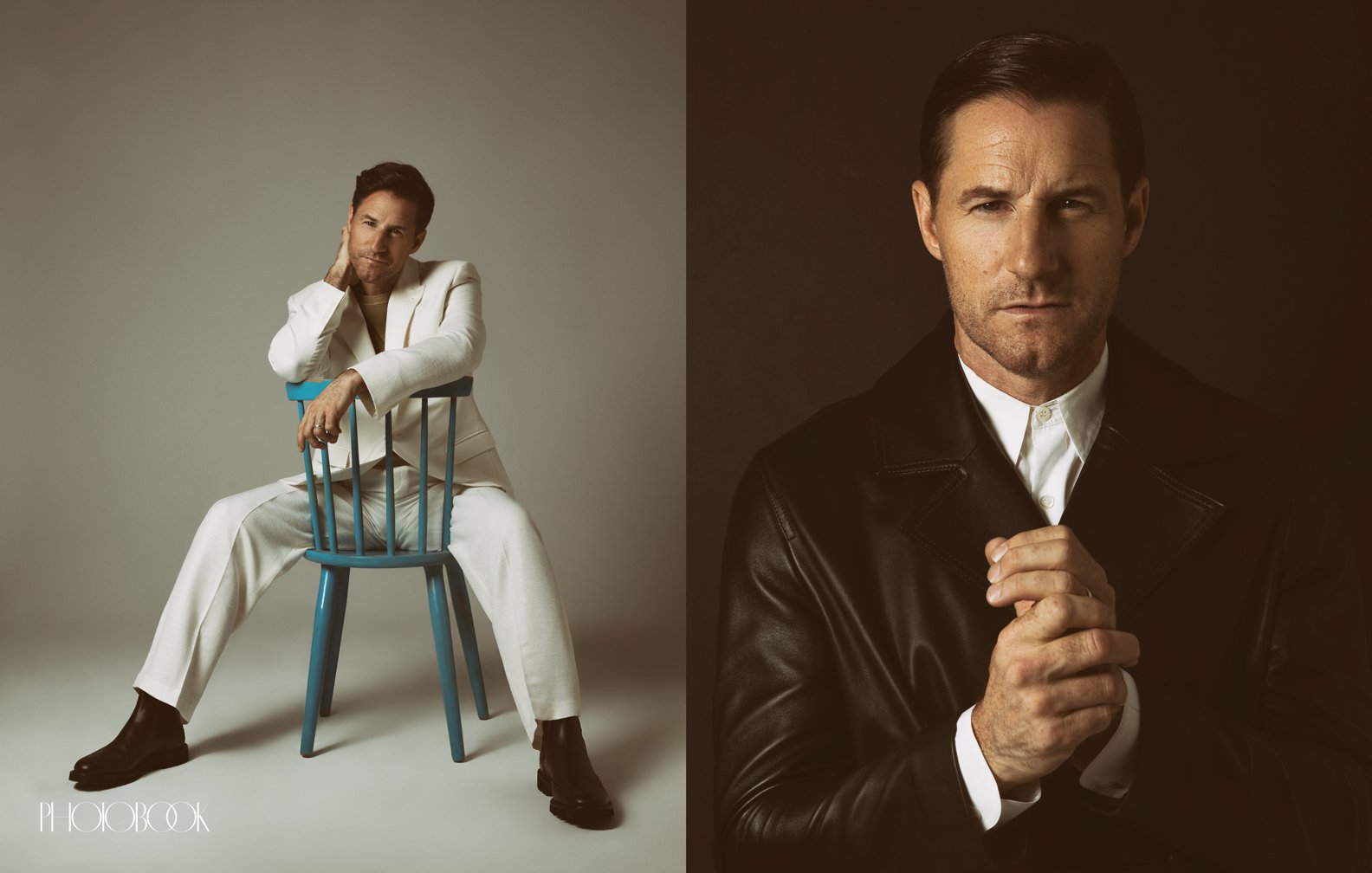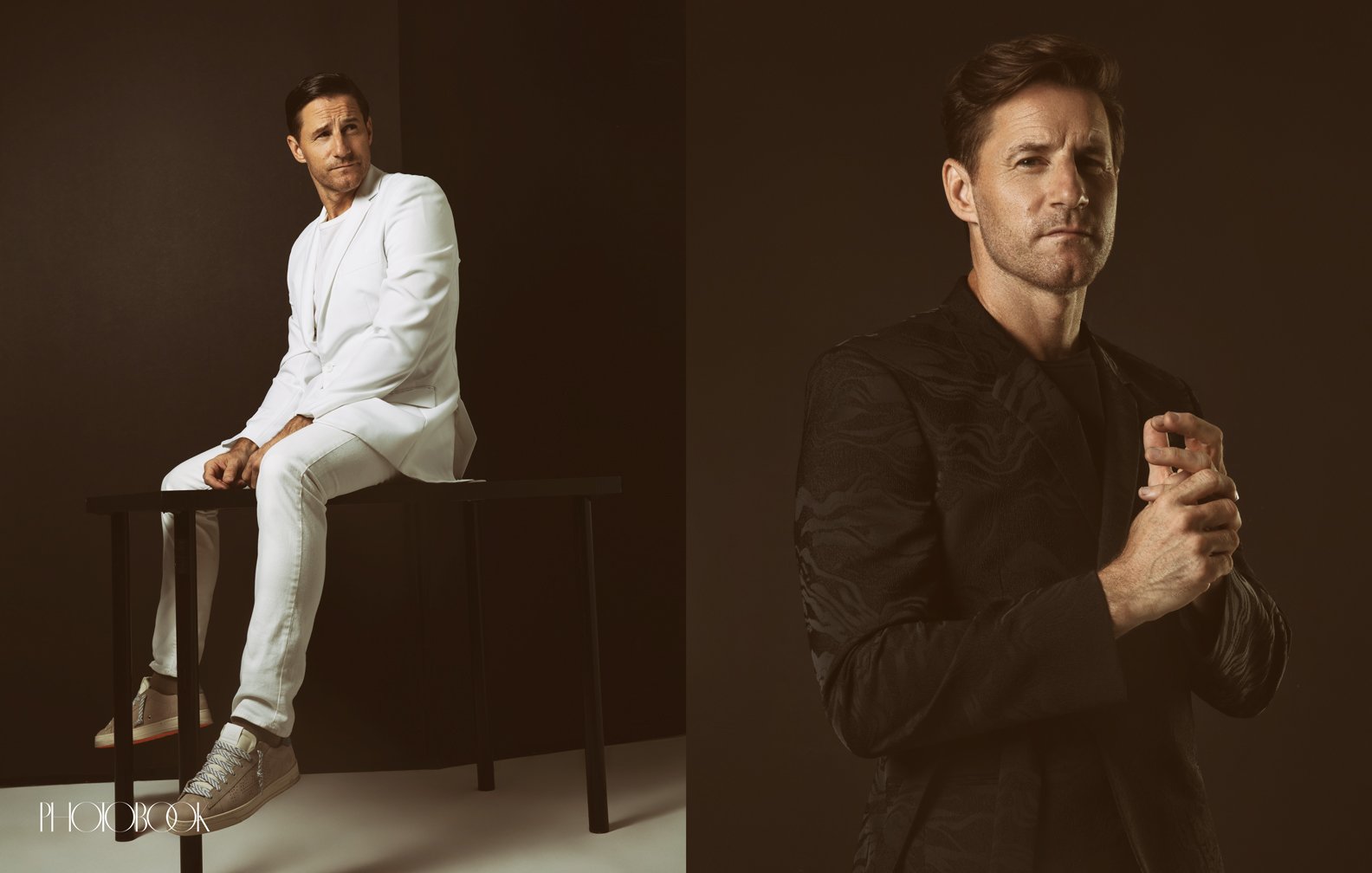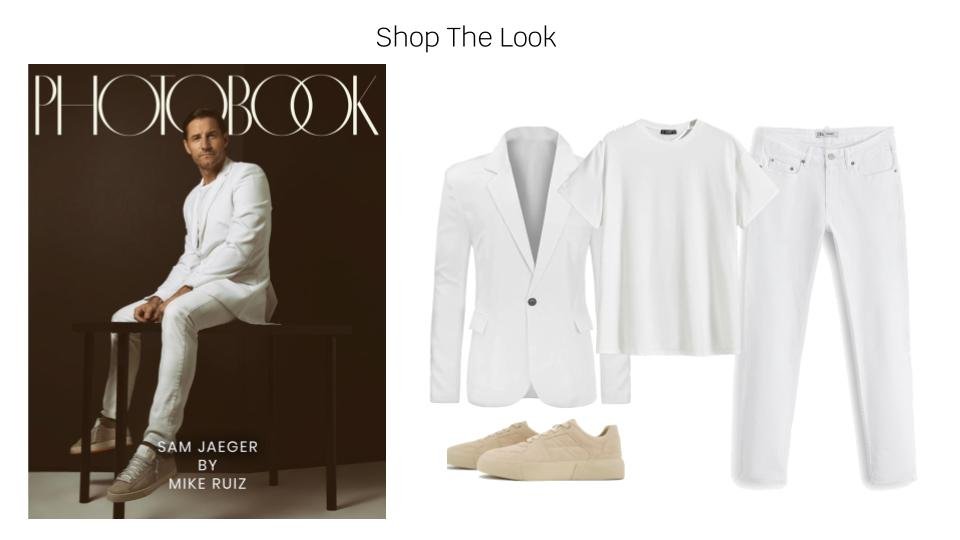Sam Jaeger
Sam Jaeger is currently a series regular on the mega-hit, multiple Emmy Award winning Hulu/MGM series, “The Handmaid’s Tale.” He plays Mark Tuello. He started the series in Season 2 in a guest role, which grew into a larger series regular. Season 5 premiered September 14, 2022. Jaeger can also be seen starring opposite Emily Deschanel in Netflix’s limited series “The Devil in Ohio,” from the best-selling book of the same name. It debuted as the #1 series around the globe on the streamer this past September.
He began his career in New York and immediately landed a supporting role in Steven Soderbergh's “Traffic” upon moving to Los Angeles. Since then, he's appeared in such films as Clint Eastwood's “American Sniper,” Paul Thomas Anderson's “Inherent Vice” and opposite Jessica Chastain and Andrew Garfield in the Academy Award winning “The Eyes of Tammy Faye.”
Jaeger is well known for his role as Joel Graham in the NBC series “Parenthood.” He played lead roles in the NBC series “Law & Order: True Crime: The Menendez Murders,” the ABC miniseries “When We Rise,” “Tell Me a Story” for CBS All-Access, Marc Cherry’s “Why Women Kill,” and Ryan Murphy/Brad Falchuk’s “The Politician” for Netflix opposite Gwyneth Paltrow.
Working behind the camera, Jaeger’s directing credits include an episode of “Parenthood,” the multi-award-winning feature film “Take Me Home,” and a music video for the indie artist Bootstraps starring Alexandra Daddario and Parenthood alum Erika Christensen.
When not filming, the Ohio native lives in California.
Shirt by Cotton Citizen Classic Crew Neck Tee in White
Pants by Madewell Slim Jeans in Vintage Canvas Wash
Blazer by Umberto Bonelli
Shoe by P448 Jack Morcor Lace Up Sneaker
What was the biggest difference you felt in your theatre performances vs on screen performances? Do you have one that you prefer? Would you choose only one if there were no repercussions involved?
Theatre is a much more rewarding medium to work in. There is nothing comparable to having a live audience. That said, I’ve always enjoyed watching films more. Even to this day, I am still able to sink into the story of a great movie without thinking about the technical aspects involved in creating it.
Was it difficult moving from the slightly more rural state of Ohio to the hustle and bustle of New York and Los Angeles?
Going to New York from Ohio felt like a big move. I remember people back home saying, “don’t get shot.” This is when New York still had that reputation in the Midwest. I think 9/11 changed that. The one thing that was harder in the big cities, both New York and in Los Angeles, was how structured filmmaking was compared to back home. My buddies and I used to shoot movies on VHS, really awful mob movies or horror films. We convinced the local video store to carry copies. We were proud of our work and blissfully ignorant. But one of the things that happens when you make a career out of your passions is that people tell you there’s a right way and a wrong way to do things, and you end up building up parameters in your mind that really don’t need to be there. Now that I don’t have much free time on any given day, as I’m focused on what next steps to take to get to the next chapter of my career, I’m also trying to hold onto that sense of freedom and mischief I had as a teenager, making movies in the backyard.
Shirt by Dries Van Noten
Leather Jacket by The Kooples
Pants by Everlane Relaxed 4 Way Stretch Organic Jean in Black
Boots by Givenchy
We see that you have not only done physical acting but you’ve also dipped your toes in the world of voice acting in the 2000 video game Code Blue. How was that experience? Did you enjoy it and would you want to further explore that area?
Well, it would definitely buy me some street cred with my boys and their friends. But I don’t feel the need to leap back into video games just yet. I think we’re still a few more years away from getting character expressions right in gaming. I know they’ve come a long way, but they all still have dead eyes to me. For a person whose career depends on facial expressions, that’s kind of a dealbreaker.
Do you want to venture out more into screenwriting and directing?
Working as a writer and director has helped my acting work, and vice versa. Going back to those high school movies, I wrote our most ambitious ones. I took it too seriously for VHS, mind you, but that was my introduction to filmmaking. Not just as an actor but as a writer, producer, and collaborator. If I know what the intention of a scene is from a writing standpoint, even if I’m there as an actor or, as I’m doing with a recent project I wrote, as director, then it helps the crew. It helps us get through the long days on set. The trick is getting your ego out of the way in service of the story.
Left:
Shirt by Cotton Citizen Classic Crew Neck Tee in White
Pants by Madewell Slim Jeans in Vintage Canvas Wash
Blazer by Umberto Bonelli
Shoe by P448 Jack Morcor Lace Up Sneaker
Right:
Shirt by Dries Van Noten
Leather Jacket by The Kooples
Pants by Everlane Relaxed 4 Way Stretch Organic Jean in Black
Boots by Givenchy
Out of all the shows and movies under your belt, what was your favorite? Do you have a favorite, please elaborate, it can be as simple as you liked your character’s hairstyle.
I loved doing “Parenthood,” and I love Handmaid’s. Such amazing people. But the truth is, I chose a nomadic career, and I love the finality of each project. I’m so glad we’re ending Handmaid’s next season. We’re going to have a hell of a great time, and we’re going to say goodbye before we get too stuck in our ways, too bitter about this or that. The best moments of my life have all circled around death, around the knowledge that this moment is finite, so I better savor it.
Now let’s talk about “The Handmaid’s Tale.” If our world were to become a dystopia akin to the world in the show, how would you rebel against the forces? Would you rebel or would you adapt and get to safety?
We’d all love to say we’d fight like hell, wouldn’t we? I think I’d be a bit like my character, though. Mark calculates his best plan of attack, the way forward that does the best for his side. Playing the long game. I’ve had to do that a lot.
Left:
Suit by ASOS DESIGN
Tshirt by Alex Mill Vintage Wash Pocket Tee in Golden Olive
Boots by Scarosso Keith Chelsea Boot in Brown
Right:
Shirt by Dries Van Noten
Leather Jacket by The Kooples
Pants by Everlane Relaxed 4 Way Stretch Organic Jean in Black
Boots by Givenchy
What is the scariest aspect of the world in “The Handmaid’s Tale,” in your opinion?
That it feels honest. It feels like our world, down to each character. How we justify horrific choices we’ve made as a society, seldom look back or reassess and never admit we’re wrong. That’s the scariest part to me, the atrocities we’re capable of rationalizing for our own preservation.
Did you have to do a lot of mental preparation in order to fully submerge yourself into such a dismal world?
Toronto in February does most of that for me. Honestly, the show knows itself so well, from the costumers to the set builders. It’s all so intentional and meticulous; it’s easy to fold myself into the story. What’s unexpected for fans, I think, is how much fun we actually have on that show. Perhaps it’s a bit of coping strategy, but I think it’s really just that Lizzie, Yvonne, OT, Samira, Bradley, all of them, they’re just so damn funny. And the crew as well. As far as working in a dystopia goes, it’s a pretty great place to punch in.
Left:
Shirt by Cotton Citizen Classic Crew Neck Tee in White
Pants by Madewell Slim Jeans in Vintage Canvas Wash
Blazer by Umberto Bonelli
Shoe by P448 Jack Morcor Lace Up Sneaker
Right:
Suit by ASOS DESIGN
T-shirt by Christian Dior
Throughout your journey in acting, did you ever have a mentor that you will always be grateful for or has made a large impact on you?
I used to read stories in magazines of all the great actors, how they lived through such traumatic childhoods and used that to fuel their work. And I’d think, “shit, I have two loving parents and good friends and extended family. I lived in a safe town. I need more trauma if I’m going to be a great actor!” But as I got older, I saw how much more capable I am as an artist, thanks to that safety net. I got to pretend all day and felt protected and loved. I’m grateful to my mom and dad for nurturing my interest in what others would consider an extremely risky career without any passive- aggressive questions or anxious looks. I know they worried, but I’m grateful they just kept their mouths shut. Sometimes that’s the best kind of parenting you can do; just shut the hell up and love.
As a well-versed member of the industry, do you have any tips on how to get yourself quickly into character? Do you have a favorite acting tip or advice?
I think refraining from judgment is always good. Having empathy for even the most sadistic character makes it feel alive. It’s painful to watch someone playing evil because it’s a person’s judgment about their own character that is getting in the way, but having empathy and a curiosity about someone will always steer you closer to them.
Left:
Turtleneck by ASOS DESIGN
Pants by ASOS DESIGN
Trench Coat by The Kooples
Loafers by Dr. Martens Adrian Smooth Leather Tassel Loafers
Right:
Suit by ASOS DESIGN
Tshirt by Alex Mill Vintage Wash Pocket Tee in Golden Olive
Boots by Scarosso Keith Chelsea Boot in Brown
Do you have any encouraging words for the new and emerging fresh faces in acting?
Just get really good at losing. Make that your profession, the acceptance of loss. Of almost, but not quite. Of maybe next time. I lose all the time; I’ve lost out on several hundred jobs in my career and I’ll lose out on several hundred more. That’s the job, but the reward for all that defeat, for that burning pile of shame and humiliation is, every once in a great while, you get to act. So, find an efficient system of dealing with defeat that works for you. And over time those defeats will carry less weight. And then when you do finally get that reward, when you walk into work on a set or a stage with all those amazingly talented people, you can celebrate yourself and all the work you put in to get there. Oh, and then be nice. People like working with nice people.
SOCIAL MEDIA.
Instagram: @samjaeger
Left:
Suit by ASOS DESIGN
T-shirt by Christian Dior
Right:
Shirt by Cotton Citizen Classic Crew Neck Tee in White
Pants by Madewell Slim Jeans in Vintage Canvas Wash
Blazer by Umberto Bonelli
Shoe by P448 Jack Morcor Lace Up Sneaker
CREW CREDITS:
PhotoBook Editor-In-Chief: Alison Hernon
PhotoBook Creative Director + Photographer + Producer: Mike Ruiz + @mikeruiz.one
Talent: Sam Jaeger
Fashion Stylist: Ariel Tunnell at Forward Artists
Groomer: Raquel Moreno
Tearsheets by Daniel López, Associate Art Director, PhotoBook Magazine
Interview by Lola Jarzemsky, Contributor, PhotoBook Magazine
Studio: FD Studios












